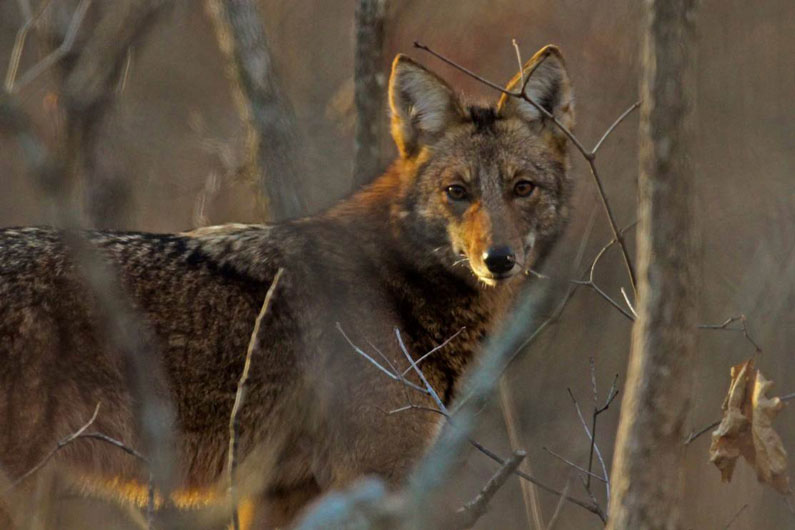Above Photo: Coyote by Melodie Cunningham (CC BY-SA 4.0)
By Dylan J. Darling
January’s JMK Coyote Hunt near Burns was the last its organizer will put on in Oregon.
Duane Freilino, hunt organizer, agreed last month to settle a lawsuit with the Animal Legal Defense Fund and Project Coyote. In the settlement, finalized this month, Freilino, a Burns rancher, agreed to not hold another hunting contest in the state and to pay more than $5,000 in attorney fees for the animal groups.
Jessica Blome, staff attorney for the Animal Legal Defense Fund in Northern California, said she’s thrilled by the outcome of the lawsuit.
“Our ultimate goal always is to stop these contests,” she said Tuesday. “The coyotes don’t deserve that treatment.”
Freilino told The Associated Press that he agreed to the settlement because he ran out of money to pay attorneys.
Six months ago, Freilino appeared to have prevailed when a Harney County Circuit Court judge denied a request by the animal groups to block the hunt. The hunt went on, but so did the lawsuit.
The JMK Coyote Hunt was held Jan. 18 and 19 in Crane, about 30 miles southeast of Burns. The winner was the two-person team that killed the most coyotes over the weekend. The entry fee for the hunt was $100 per person or $200 per team. Before the contest, Freilino said 80 percent of the fees would be paid out as prizes, with the winners taking home 50 percent, second 20 percent and third 10 percent. A prize raffle of items donated by sponsors was also planned. Freilino canceled a Calcutta, or side bet, for participants to wager on who would win, after his January day in court.
Blome and others involved with the animal groups said they don’t know how many animals were killed this year. Freilino didn’t respond to phone messages and email Tuesday. In 2013, the annual hunt drew 20 teams, who killed just fewer than 150 coyotes.
Freilino has said the reason for the hunt was to reduce the number coyotes around Crane and lessen the problems they cause for cattle and other animals. It also brought an economic boost to Crane, he argued.
“It’s a good event for the community and brings people into the area at a time of year when there is very little tourism,” he said in a Jan. 18 article in The Bulletin.
The Oregon Department of Fish and Wildlife doesn’t regulate coyotes as a game species, so there is no defined hunting season or bag limit for the animals.
Freilino filed a counterclaim for $100,000 against the animal groups, but Blome said Freilino dropped it before agreeing to the settlement.
In their complaint, the animal groups claimed the coyote hunt was an illegal gambling event. Although the focus of the lawsuit was the gambling, the groups’ main objective was to halt “wildlife killing contests,” said Camilla Fox, founder and executive director for Project Coyote. The Northern California nonprofit calls for the coexistence of people and predators.
“We believe that (the contests) are ecologically and ethically indefensible,” she said. Fox’s group is leading an effort to try to ban such contests in California.
Bob Crabtree, a member of the science advisory board for Project Coyote, said he feels it is unbelievable there isn’t a ban on wildlife killing contests around the country.
“It’s just shocking that (they) still happen,” he said.
Download the article here.

